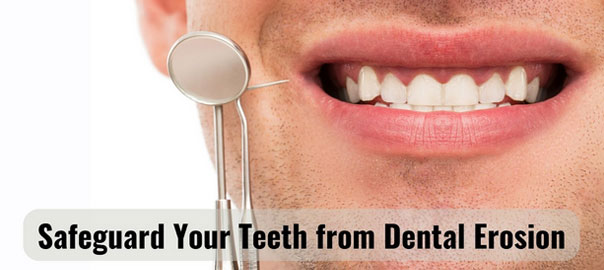
Dental Erosion: Protecting Teeth from Acidic Attack
This is a condition wherein the enamel of your teeth wears off, meaning the outer layers of your teeth become dislodged. This happens through the effects of some foods and drinks containing acidity and due to specific types of diseases as well as through acid reflux. The enamel needs protection against acid attacks; here are some guidelines that help you keep good oral health.
- Limit acidic foods and drinks: Oranges, orange juice, colas, sports drinks, and foods with vinegar are acidic. If you want to have them, limit the exposure time of your teeth. Drink through a straw. Then rinse your mouth by drinking water.
- Rinse with Water: Once you have had foods and beverages that contain acid, wash your mouth. In doing so, the acidity will be neutralized, allowing your mouth to wash away the acid fully with minimal exposure of the food bearing the acidity to your teeth.
- Do not be in a hurry to rush into brushing:: Wait at least half an hour following the consumption of acidic foods. Acid softens enamels. If you wash up immediately after eating any form of acidic food, you give a formula for harming it further. You should then rinse your mouth by mouth with water or some fluoride-based mouthwash.
- Use a soft-bristled toothbrush: Brushing with a soft-bristled toothbrush in circular motions will mean that over time, enamel will be worn away through the use of hard bristles together with the strength of forcing the brush into the rub.
- Fluoride mouthwash and fluoride toothpaste: Use fluoride-enriched toothpaste and make use of the fluoride mouthwash, which is helping in strengthening the enamel as it helps in the overall process through which the enamels can get re-mineralized so that they can become resistant once more towards any form of acid attack.
- The chewing of sugar-free gum stimulates saliva production. Food particles are washed away, and acids neutralized. Minerals in the saliva may be transferred to your teeth for purposes of remineralization.
Hydration with water is adequate to ensure healthy flow of saliva, thus protecting your teeth from acid attacks by showing saliva flow.
- Regular dental visits: you should visit your dentist sometimes for check-up and professional cleanings. In this case, a dentist feels the mild symptoms of dental erosion and provides the needed treatment and counseling.
- Fluoride Treatment: If you tend to have dental erosion or already have some signs of enamel melting away, your dentist might place you under fluoride treatment whereby your teeth are fortified in strength and also protected from acids.
- Manage the Medical Conditions: If you have acid reflux or bulimia conditions, manage them with your health provider. The management of the underlying condition will reduce the impact on your teeth.
Remember then that prevention is the best defense against dental erosion. Following these tips and proper hygiene in the oral surroundings will save your teeth from the acidic agents’ attack and continue smiling healthily. With regard to concerns or symptoms, bring this up with your dentist so he or she may give you some appropriate recommendations.
Leave a Reply
Leave a Reply
Explore More Similar Posts
Explore More Blogs


Leave a Reply